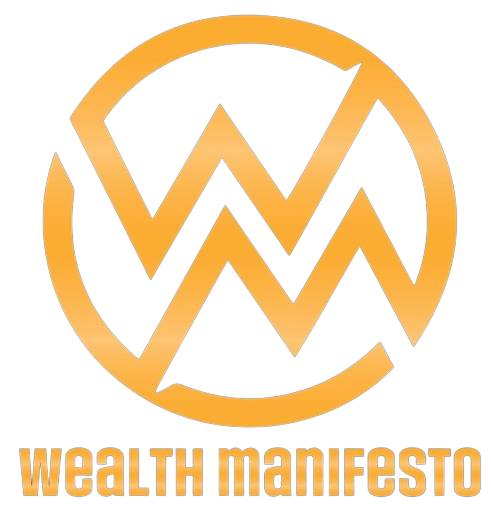CVS health is a huge American retailer and health care services provider.
They operate pharmacies, convenience stores, walk-in medical clinics and through Aetna they have a very large health insurance business.
Huge eh? How huge is huge?
CVS ranks number 7 on the list of biggest US retailers by revenue. On top of that, Aetna (which merged with CVS at the end of 2017) ranks number 6 on the list of biggest US health insurance companies.
The CVS name is ubiquitous in the US. With almost 10,000 locations, no matter where you are, chances are you are within walking distance of a CVS:
hat/tip: https://www.scrapehero.com/location-reports/CVS%20Pharmacy-USA/
Executive Summary
- The bad news: The CVS merger with Aetna in 2018 saddled the company with what can only be described as a huge steaming pile of debt. 71B worth to be exact. Top that off with the fact that the retail industry faces enormous structural problems and the fact that Amazon is getting into the pharmacy business and you can see why Wall St hasn’t been excited about CVS for quite some time.
- The good news: But all is not lost! Over the past few years CVS has paid off quite a bit of debt while growing free cash flow. Despite that CVS still only trades for EV/EBIT of 10.5x. That’s not bad at all considering the S+P500 is trading at nosebleed valuations of almost 35x earnings. Management has also stated that with debt coming into a manageable range they’re expecting to start point their cash cannon at shareholders in 2021.
The bad news
CVS Health maxed itself out to buy Aetna in 2017. They went into the deal with 22B of debt sitting on the balance sheet and came out the other side with 71B of debt. The interest expense on that debt was a whopping 2.6B in 2018 which did not leave much room for error considering the operating income before interest expense in 2018 was only 4B.
On top of that the pharmacy business that is at the heart of CVS health was a serious target for retail disruptors. Pharmacies have high margin, recurring revenue, and are obvious candidates for at-home delivery. This makes CVS’ core business a target for attack.
The picture has improved over the past two years but those two risks still overhang CVS.
Although the debt pile is smaller and the interest charge is lower, there continues to be real pressure from the outside on their pharmacy business and having a huge pile of debt really prevents them from plowing that cash flow back into store upgrades and e-commerce platforms.
The good news
When management went into the 2018 year they knew they needed to get the debt under control and that’s what they’ve done:
- 2018 debt balance – 71B
- 2019 debt balance – 69B
- 2020 debt balance – 64B
While at the same time free cash flows have been going in the other direction:
- 2018 free cash flow – 6.8B
- 2019 free cash flow – 10.4B
- 2020 free cash flow – 13.4B
They put up that impressive 2020 number despite navigating the ups and downs of the pandemic.
On top of that, the cost of maintaining the debt they still have has gone down considerably
The 10yr treasury yield was 2.67% at the end of 2018 and sits today (even with the recent run up) at 1.48%.
That means, all other things being equal, the cost of the debt that CVS carries has dropped by 45% of the last 2 years!
(I know I’m glossing over some nuances here but I never claimed to be an expert)
Despite all that good news Wall St still doesn’t seem to believe the story
The stock price closed 2018 at $65.19 and today prior to open it trades at only $68.47.
But of course you are all too smart to fall for that deceptive math right? Share price without share counts are useless!
CVS issued quite a bit of stock in 2019 so if you incorporate the share counts you see market cap was 68B in 2018 and is 88B now (a modest 30% improvement in valuation).
Given that over that same time frame the S+P500 has gone up 44%, CVS is way behind.
And from a FCF perspective, at year end 2018 with a market cap of 68B the company traded at 10x FCF and as of today despite the 30% increase in market cap the company trades at only 6.7x FCF because cash flow improvement has outpaced the stock price appreciation.
TLDR? CVS is cheap cheap cheap compared to its peers, its history, and its cash flow.
Conclusion
Once again DRI is breaking its own rules.
We said we were done with retail…and we’re investing in retail.
We said we didn’t like debt…and we’re buying a company with more debt than some sovereign states.
But strange times call for new ideas. And remember this pearl of wisdom,
“Nearly every lesson you think you’ve learned will be the wrong lesson to apply at some point in the future.”
So we’re going to break all our own rules and buy some CVS.
Disclosure: Donkey Rockets is long CVS
Did you enjoy this article? Have a look at some of our other recent posts
Disclaimer: donkeyrockets.com is not operated by a broker, a dealer, or a registered investment adviser. Under no circumstances does any information posted on donkeyrockets.com represent a recommendation to buy or sell a security. The information on this site is not intended to be, nor does it constitute, investment advice or recommendations. In no event shall donkeyrockets.com be liable to any member, guest or third party for any damages of any kind arising out of the use of any content or other material published or available on donkeyrockets.com, or relating to the use of, or inability to use, donkeyrockets.com or any content, including, without limitation, any investment losses, lost profits, lost opportunity, special, incidental, indirect, consequential or punitive damages.



